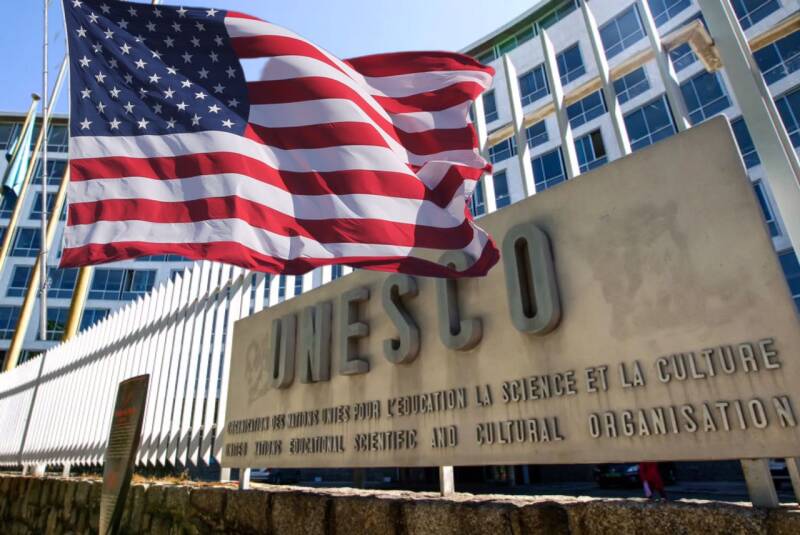
By Kennedy Nalyanya
Paris, France – UNESCO Director-General Audrey Azoulay has expressed deep regret following President Donald Trump's decision for the United States to once again withdraw from the organization, effective at the end of December 2026. This move, which marks the second U.S. withdrawal under the Trump administration, is seen by Azoulay as a direct contradiction of "the fundamental principles of multilateralism."
The decision is expected to particularly impact American partners who collaborate with UNESCO on initiatives such as World Heritage List inscriptions, Creative City designations, and University Chairs.
Despite the disappointment, Azoulay stated that the announcement was "anticipated," and UNESCO has been actively preparing for such an eventuality. In recent years, the organization has undergone significant structural reforms and successfully diversified its funding sources.
"Thanks to the efforts made by the Organization since 2018, the decreasing trend in the financial contribution of the US has been offset," Azoulay noted. The U.S. contribution now accounts for 8% of UNESCO's total budget, a stark contrast to the 40% it represented for some other United Nations entities. Simultaneously, UNESCO's overall budget has seen a steady increase, bolstered by the "steady support of a large number of Member States and private contributors," with voluntary contributions doubling since 2018. As a result, the organization is currently "better protected in financial terms" and is not considering any layoffs at this stage.
Even following the initial U.S. withdrawal in 2017, UNESCO intensified its efforts to fulfill its mandate for peace. The organization successfully completed its largest-ever operation, the reconstruction of the old city of Mosul, which commenced in 2018. It also adopted the first global standard-setting instrument on the ethics of artificial intelligence and developed major programs supporting culture and education in conflict zones like Ukraine, Lebanon, and Yemen. Furthermore, UNESCO has scaled up its work in biodiversity, natural heritage, and girls' education.
Azoulay highlighted that the reasons cited by the United States for its withdrawal are the same as those presented seven years ago, despite a significant shift in the global landscape. She emphasized that "political tensions have receded, and UNESCO today constitutes a rare forum for consensus on concrete and action-oriented multilateralism."
The Director-General also specifically refuted claims regarding UNESCO's efforts in Holocaust education and the fight against antisemitism. As the sole United Nations agency responsible for these critical issues, UNESCO's work has received unanimous acclaim from leading specialized organizations, including the United States Holocaust Memorial Museum, the World Jewish Congress, and the American Jewish Committee (AJC). UNESCO has supported 85 countries in implementing tools and training teachers to educate students about the Holocaust and genocides, and to combat denial and hate speech.
Despite the inevitable reduction in resources caused by the U.S. withdrawal, UNESCO affirmed its commitment to continue these vital missions.
"UNESCO's purpose is to welcome all the nations of the world, and the United States of America is and will always be welcome," Azoulay concluded. The organization intends to continue working closely with its American partners in the private sector, academia, and non-profit organizations, and will maintain political dialogue with the U.S. administration and Congress.


Add comment
Comments